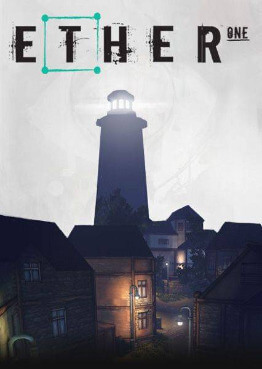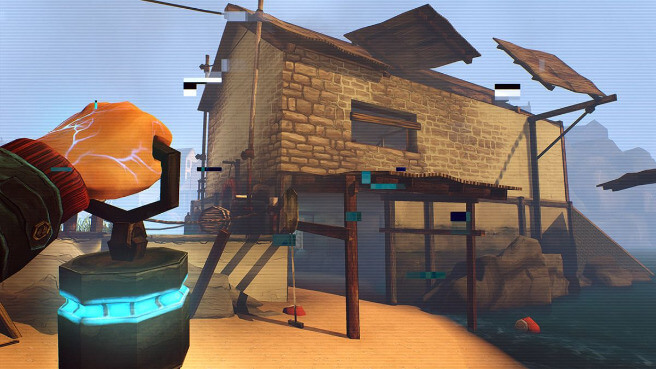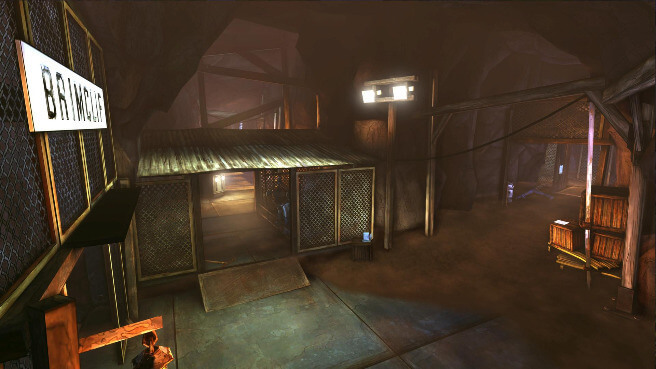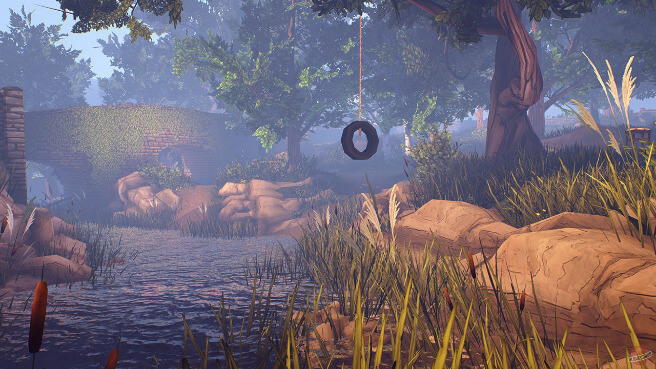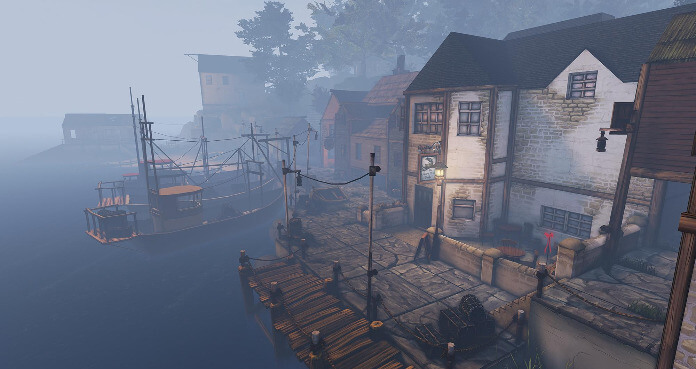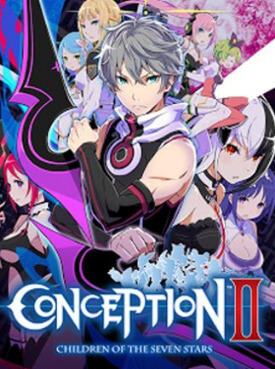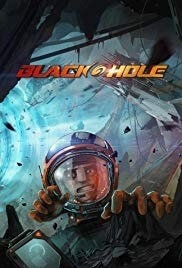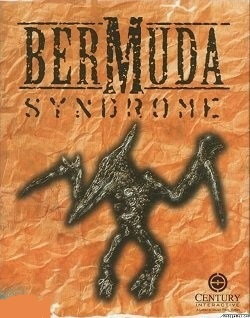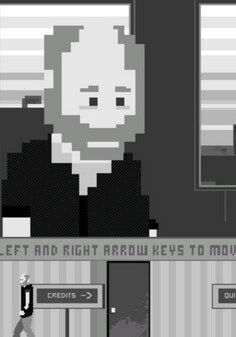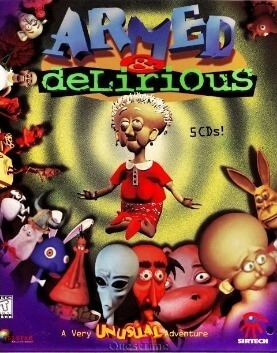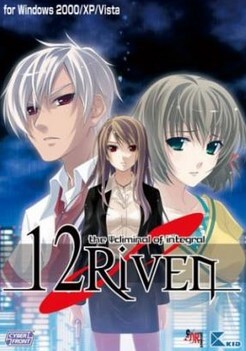Ether One is a first-person adventure game developed by British independent company White Paper Games. It was the studio's debut game and was originally released for Microsoft Windows on March 25, 2014. A PlayStation 4 edition was released on May 5, 2015.
In Ether One, the player assumes the role of a "Restorer", whose job is to investigate the thoughts of Jean Thompson, a 69-year-old woman diagnosed with dementia. The player must reconstruct Thompson's memories using three-dimensional simulations of the details she can remember in the town of Pinwheel, solving puzzles that become more obtuse throughout the gameplay, as the patient's thoughts continue to grow more unstable.
Ether One took around three years to complete and was released to positive critical reception, particularly for its atmosphere and immersive themes, while its narrative divided critics. The game's portrayal of dementia in the Jean Thompson character was also praised by numerous critics, such as The New Yorker and Kotaku.
Gameplay
Ether One is a first-person exploration game with optional puzzle solving. The player is cast as a "Restorer", an individual with the ability to project himself into the mind of someone suffering from mental illness in the hopes of restoring their memories. The game takes roughly five hours to complete.
After the game's premise is introduced to the player, the town of Pinwheel (the game's central location) is opened up to the player. The player must collect red bows tied to objects. A broken reel projector on the floor indicates a puzzle; once a puzzle has been solved, the memory it represents can be played back. Puzzles may involve physical tasks, such as completing a shipment of cider, while others are more mentally labouring in nature. The puzzles become more difficult and obtuse throughout the game, simulating the chaos and difficulty of a person suffering from dementia.
The player can also teleport at any point to a hub area, a virtual room where objects (picked up in memories) can be stored. These objects often have little-to-no relevance to the game's plot, and also tie in with the game's portrayal of dementia. The room allows the player to access the main areas of the patient's past and collect memories from these areas; the player is "never sure" of what is important and what is not, meaning they are encouraged to take everything.
Plot
The player assumes the role of a "Restorer", an employee of a futuristic memory-retrieval company called the Ether Institute of Telepathic Medicine. The Restorer is tasked with investigating the thoughts of Jean Thompson, a 69-year-old woman diagnosed with dementia, and retrieving her lost memories. The Institute is able to generate 3D simulations of damaged memories, and the Restorer must reconstruct them using the remaining pieces of those memories. The project is led by Dr. Phyllis Edmunds, who guides the Restorer through the memories. She claims that the project is on the brink of losing its funding, and that Jean's case will either make or break the future of the Institute.
Once inside the patient's mind, the Restorer makes their way through the patient's childhood memories of Pinwheel, a seaside village in England which relies heavily on tin and iron mining. Throughout the journey, the Restorer learns about the village's residents, a terrible accident in the mines that cost the lives of dozens of its citizens, and Jean's growing relationship with a boy named Thomas, whom she later marries. While rebuilding the memories, the Restorer encounters a gem-like stone, representing the dementia they are attempting to rid the patient's mind of. They must destroy the stones using the "Artifact", a lamp capable of erasing the dementia from the mind.
The patient's mind becomes more and more unstable as the process continues, and it is revealed through a series of flashbacks and revelations that the Restorer is actually Thomas. It is also revealed that he is not inside Jean's mind, but his own, trying to cure himself of his own dementia. Thomas had worked with Jean's father in the mines, and while Thomas managed to escape the deadly collapse, the father did not, leaving him riddled with guilt. Thomas' worsening condition and Jean's subsequent passing lead to Thomas creating his own fantasy world. Their son, Jim, had admitted him into a memory therapy clinic, where Dr. Edmunds had been working to bring his memories back and stop the dementia from progressing. With her help, and his memory of Jean encouraging him, he travels through the memories of his traumatic childhood in which his mother left his alcoholic father (who later dies in an accident at home), and is able to release himself from his fantasy world, curing his dementia and making the project a success. Afterward, Thomas is released to Jim's care, and thanks Dr. Edmunds for all her help.
Development
The game was developed by a 6-person team at White Paper Games, based in Manchester. Ether One was influenced by the studio's desire for "rich, narrative experiences" and game designer Pete Bottomley's goal to tell a story that he "could invest himself in". Regarding the game's portrayal of dementia, Bottomley stated that the team did not aim to necessarily raise awareness of the disease, but rather "open the conversation" and put the player in the perspective of someone suffering from it. Many members of the development team had family members that struggled with dementia.
Ether One is the studio's first game, and took around three years to create. Sound composer Nathaniel- Jorden Apostol composed the soundtrack for the game, which was later offered for sale on Bandcamp. Bottomley found it difficult "trying to build a studio" as well as a game at the same time. Bottomley and the team had to "carefully balance" the player's awareness of the character and the rules that bound gameplay, writing that it "wouldn't be fair" on the player to spend time solving puzzles if one could break at any time. The development team, during promotion for their next game The Occupation, stated that they "learnt a lot" from the production of Ether One. The two games are set in the same universe. A Mac version of the game was planned, but shelved due to performance issues.
